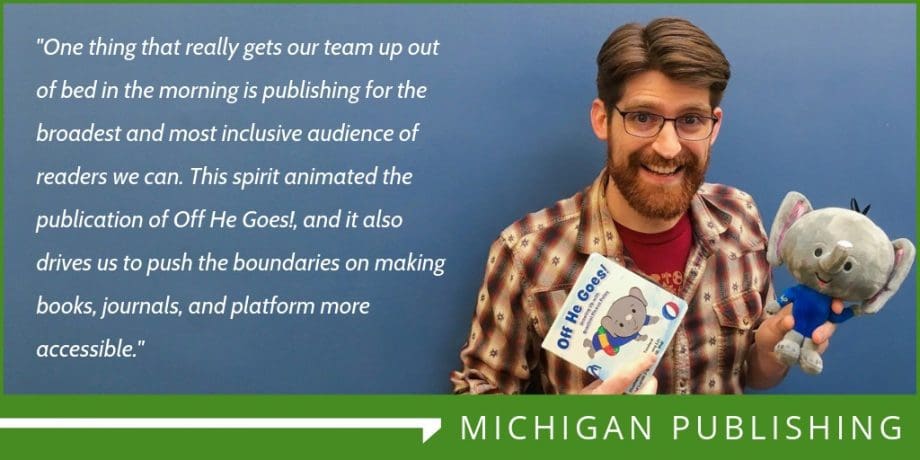
October 22, 2020
Library Publishing Pain Points – Aging Infrastructure
By Jason Colman
Editor’s note: This is a guest post in our Library Publishing Pain Points series, featuring reflections from our Library Publishing Workflows partners on the challenges they face in implementing, running, and sustaining their library publishing workflows.

As we’ve expanded our Open Access journal publishing work over the last few years, growing from 20 or so journals to about 40, Michigan Publishing has encountered some pain in a particular point in our workflow: converting journal articles from the formats in which authors have written them into the flavor of TEI XML that our publishing platform, DLXS, requires. This work takes our team about an hour per article to complete, on average, and that means a significant time investment which can be hard to explain to journal editors. When a journal includes complex math or symbolic logic written in LaTeX, the time to move a single article through our system can easily increase from an hour to a full day, or even several days. All of this slows down our time to publication and, since we bill our journal partners for the time we spend working on their articles, it gets pretty expensive for them.
To further complicate matters, the work of moving a XML document through DLXS to the final web version takes place largely on the command line – an efficient way to work when you’re an expert, but one that requires a fairly significant learning curve for new members of the team. If anything goes wrong, we sometimes need to know perl, XSLT, or shell scripting in order to fix it. The high technical barrier to entry makes it hard to train students to help in our work unless they stick around a few years, and it keeps our developers busy supporting older technology.
DLXS was developed at the University of Michigan Library starting in the late 1990’s, and (although it’s done great things for us) it is clearly showing its age. The Library is planning to sunset DLXS relatively soon. Even if it weren’t going away, Michigan Publishing would still need a new journals platform to help us work more flexibly and efficiently.
We strongly support community-owned open source scholarly communication infrastructure (we have been building our own open platform, Fulcrum, to support digitally-enhanced book publishing), so it was an easy choice for us to select Janeway (from the Birkbeck Centre for Technology and Publishing) for our next-generation journals platform. We’re hoping to move all of our active journals off DLXS in 2021 or 2022, and transition them to a much more industry-standard JATS/HTML-based workflow that can play well with both existing content conversion tools and vendor offerings. We also plan to build an integration between the two platforms so that Fulcrum’s rich media capabilities can be embedded in Janeway journal articles.
There will, of course, be a big pain point here: migrating all of the thousands of journal articles we’ve previously published in these journals from DLXS to Janeway. But we’re optimistic that once we get through that project, the new platform will make the lives of our production team and editors much easier. The move will also help us keep costs low for our publishing partners, many of whose journals would never be sustainable in a commercial environment. Check back with me in 2022 and we’ll see if the pain’s been relieved!

